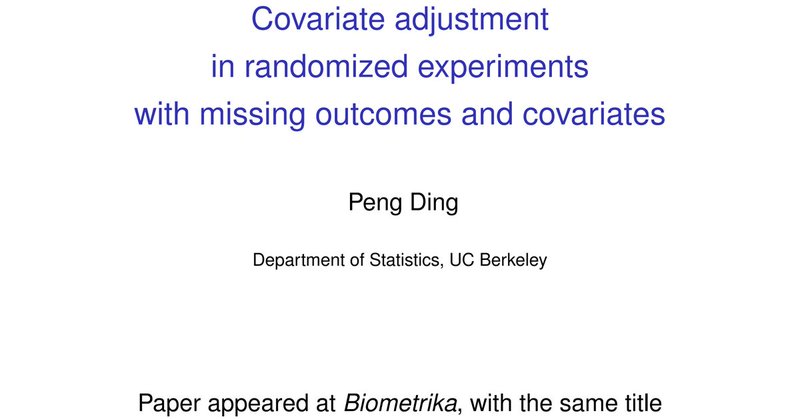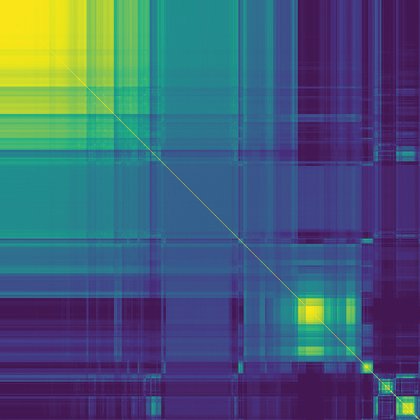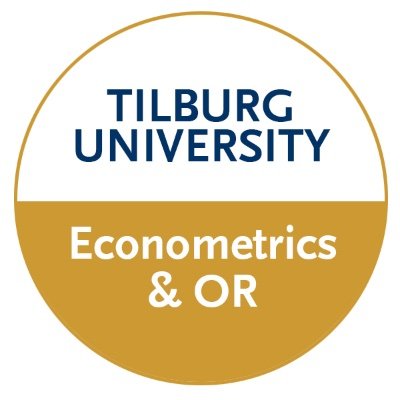
Peng Ding
@pengding00
Followers
2K
Following
722
Media
1
Statuses
67
Associate Professor of Statistics
Berkeley
Joined December 2022
excited to see the physical copy of the book; nervous about the potential errors. Comments are welcome.
I just uploaded the R code and datasets to Harvard Dataverse: https://t.co/zSDEnA2tMO I plan to provide Python code as well but I need to learn Python first.
20
109
725
Thanks for the coverage, Bia! Amazing post, as always.
We have a new post!📬 ⭐️Factorial DiD (Xu, Zhao & Ding) ⭐️DiD With No Untreated Units (de Chaisemartin et al.) ⭐️Treatment Effects in Complex Designs (de Chaisemartin & D’Haultfœuille) ⭐️Inference With Few Treated Units (Alvarez, Ferman & Wüthrich) https://t.co/1tNCOu38oK
0
3
23
I just sent the new version of the textbook to CRC: https://t.co/LVVFjanTBR with R code and data at: https://t.co/JXUpUuJlNH I can still make minor changes. Comments are welcome.
I just posted my notes for Stat 230 ``Linear Models'' to ArXiv: https://t.co/R3PRNNEne7 It covers the linear model and many extensions. I will teach it again in the spring and continue polishing the notes. Comments are welcome.
1
30
144
very excited to see the paper "Nonparametric identification is not enough, but randomized controlled trials are" with comments from @beenwrekt ("A Bureaucratic Theory of Statistics") and myself ("What randomization can and cannot guarantee"):
2
16
99
excited to see the published version of our paper on dealing with missing covariates and outcomes in randomized trials: https://t.co/4uts235hQX It is a simple paper with some intriguing results. Slides are here: https://t.co/VEL3gPA4bS
@FanLiDuke
dropbox.com
Shared with Dropbox
2
39
141
101 years ago, Neyman introduced potential outcomes and design-based inference. For a special issue of Journal of Causal Inference, Sandrine Dudoit (@cendrinou), Deb Nolan (@DebAtStat), Terry Speed, and I wrote about how 4 books from @UCBStatistics & @thaddunning explain 1/
1
44
136
We view DID as a factorial design with the panel data structure. It is a fun paper. Comments are welcome.
Sharing a new working paper with Anqi Zhao & Peng Ding @pengding00, titled "Factorial Difference-in-Differences." https://t.co/29bDeAlu3J 🧵 Comments and suggestions are welcome!
1
26
129
🧑🏫 UC Berkeley seeks applicants for 4 tenure-track and 1 tenured professor position in "AI, Inequality, and Society." Explore areas like employment, algorithmic bias, and more. Salary: $78,200-$310,300.
0
10
14
IPW with the estimated propensity score is another example. The first-stage estimation reduces the asymptotic variance, which surprises many people. A recent paper is https://t.co/PvzcZV5HGO Also, Newey&McFadden chapter 6 is about "two-step estimation"
Anyone have other examples of multi-step estimation problems where one needs to propagate uncertainty in first-step estimation into subsequent-stage coefficients? Generated regressors would be a standard example (eg centering regressors as in qt)
0
11
77
This is an interesting and useful trick. However, centering factors has some special restrictions on the estimated factorial effects when there are more than 3 factors (3 is the magic number there!). This motivates us to write this paper:
A fun fact about regression that many know but maybe is new to you: If you have an interaction bw continuous X1 and binary X2, mean-centering X1 will make the coefficient on X2 be its marginal effect when X1 is at its mean level rather than 0 without changing the interaction
0
23
85
In @AmstatNews JASA, Anqi Zhao & @pengding00 consider alternative strategies to address covariate missingness in randomized experiments and recommend including missingness indicators when estimating average treatment effects. https://t.co/NHKKbSaItH
1
4
8
Just gave a guest lecture on Bayesian Causal Inference at Williams College, with slides and R code at https://t.co/14nXGnNVbL which is an introduction to our review paper https://t.co/NobzD1YtBB
@fabri_mealli @FanLiDuke (I never taught any Bayesian Statistics at Berkeley.)
royalsocietypublishing.org
This paper provides a critical review of the Bayesian perspective of causal inference based on the potential outcomes framework. We review the causal estimands, assignment mechanism, the general...
0
55
194
Fan Li's slides for causal inference
Done another semester teaching causal inference🙂. Updated my course slides, added survival data, labs, corrected more typos this time. Close to 800 pages now. Always more to update next year. https://t.co/Bpy7uYRKVq
0
0
22
Hope we provide some new insights into the old problem of missing data in RCTs. @FanLiDuke
Happy to see my paper with @pengding00 and Anqi Zhao @DukeU "Covariate adjustment in randomized experiments with missing outcomes and covariates" is out https://t.co/Vdh2eiQZu1 This 8-pages paper gives a simple and clean solution to a prevalent practical problem.
0
3
37
``control'' means many different things in statistics, e.g. treatment-control experiment; control for confounding; case-control study; negative control; controlled direct effect; control function. ``control'' can even mean covariates (good or bad controls).
@pengding00 @carolcaetanoUGA May I ask what does “control” mean? I feel people usually just call it potential outcome. “Control” sounds like a mediation terminology.
0
0
18
My co-author @rlbarter and I are thrilled to announce the online release of our MIT Press book "Veridical Data Science: The Practice of Responsible Data Analysis and Decision Making" ( https://t.co/u1euH9dcLC), an essential source for producing trustworthy data-driven results.
6
58
190
How should we analyze experiments that randomly form groups of people? A new paper by Basse, @pengdingpku, @AviFeller, and @PanosToulis proposes a simple-to-implement, randomization-based test that is exact in finite samples.📊 https://t.co/FFfYDlGg4L
0
34
126
I just posted my notes for Stat 230 ``Linear Models'' to ArXiv: https://t.co/R3PRNNEne7 It covers the linear model and many extensions. I will teach it again in the spring and continue polishing the notes. Comments are welcome.
2
40
168
Congratulations to Denis Kojevnikov who received the 2023 @JEconometrics Zellner Award, together with @vadimmarmer & Kyungchul Song, for the best theory paper in the journal: Limit theorems for network dependent random variables 👏🏽👏🏽 https://t.co/cxeSC2onKu
@PaulaAureo
1
10
56
Open rank teaching professor position in EECS/Data Science at @BerkeleyDataSci! Our teaching professors are in the Academic Senate, can get tenure equivalent (Security of Employment in our HRese), and get to shape a world-leading data science program. https://t.co/TCm9wDN8Ns
0
6
8














